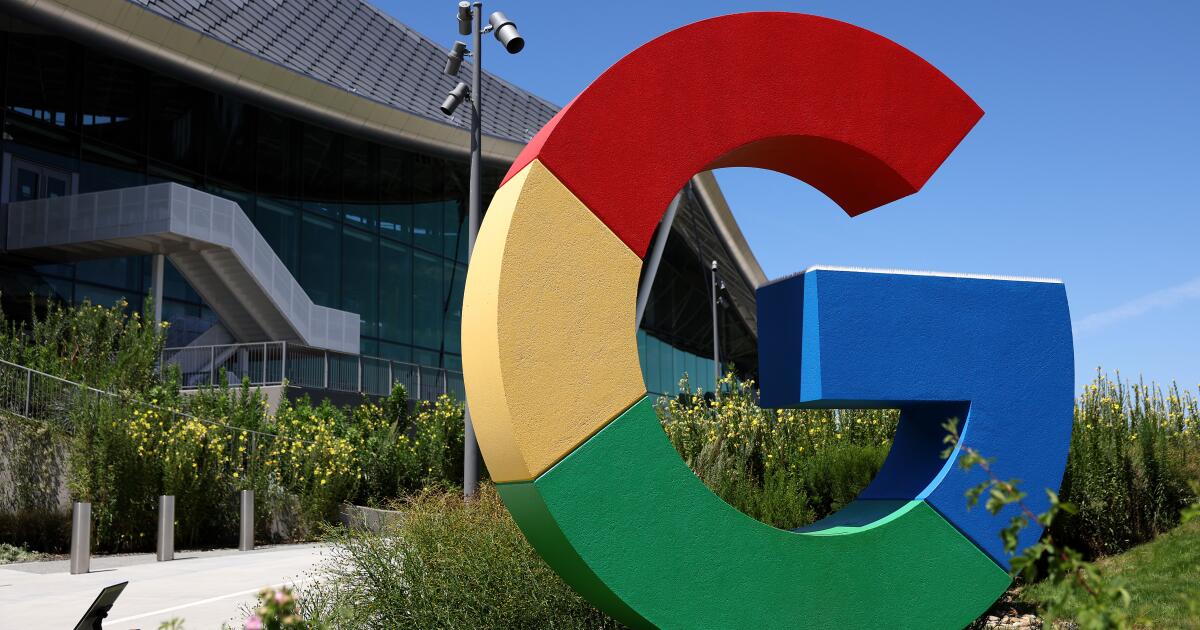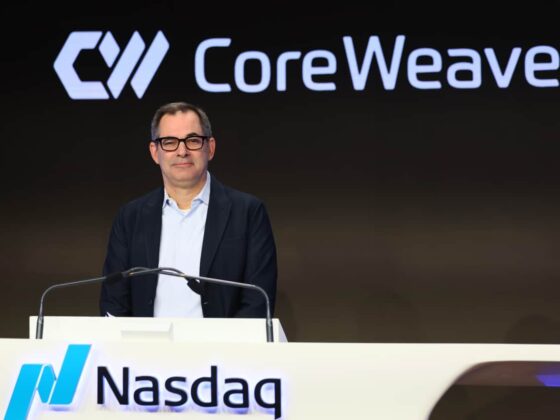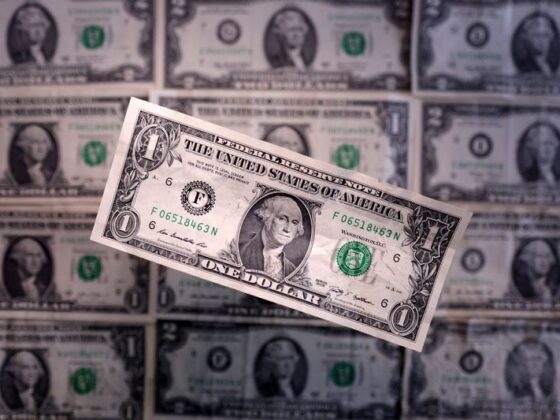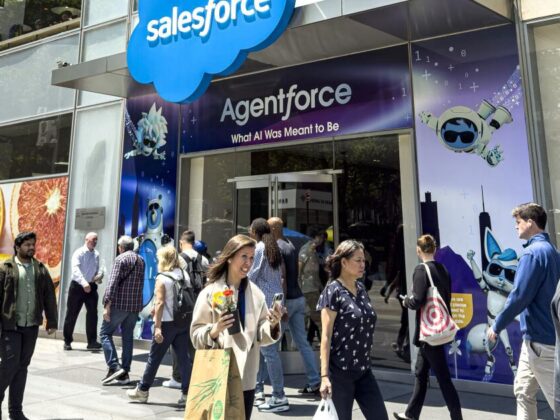A federal judge ruled Tuesday against the U.S. government’s proposal that Google should sell its Chrome web browser to restore competition in online search, saving the tech giant from having to spin off one of its biggest businesses.
In the more than 200-page ruling, U.S. District Judge Amit Mehta said forcing Google to divest Chrome went too far and the remedy was a “poor fit for this case.”
Since the web browser relies on the tech company’s systems, breaking up Chrome from Google would also be “incredibly messy and highly risky,” the judge wrote.
The ruling is a partial win for Google, falling short of the bigger changes the government proposed. But it could still affect other tech companies that face scrutiny over their dominance.
Shares of Google’s parent company, Alphabet, surged more than 7% in early after-hours trading following the announcement.
Under the ruling, Google would still be required to make other changes. The company would be barred from entering exclusive contracts tied to the distribution of Google Search, Chrome, Google Assistant and the Gemini app, the tech company’s AI assistant.
It would also be required to offer certain rivals search data and services to help them compete with the search giant as they develop their own technology, the ruling stated.
“We have concerns about how these requirements will impact our users and their privacy, and we’re reviewing the decision closely,” Lee-Anne Mulholland, Google’s vice president of regulatory affairs, said in a statement.
Mehta acknowledged that the rise of artificial intelligence chatbots that can generate answers to questions may become “game changers” in the future, but they have yet to replace search engines.
“Google is still the dominant firm in the relevant product markets. No existing rival has wrested market share from Google. And no new competitor has entered the market,” Mehta wrote in the decision.
Google, however, wasn’t barred from paying or offering “other considerations” to partners such as Apple if the companies placed its search engine, Chrome or its generative AI products on browsers and mobile devices by default.
Dan Ives, an analyst at Wedbush Securities, called that decision a “monster win” for both Google and Apple. “We now see a green light for a bigger Gemini AI partnership between Apple and Google with this DOJ case now in the rear view mirror,” he wrote in a note on Tuesday.
In another victory for Google, the judge also ruled that the company wasn’t required to tweak its policies to give website publishers more choice in how the search giant uses their content because that fix “bears no relationship to Google’s unlawful acts.”
News publishers are worried that the rise of AI, which can quickly summarize articles, will result in traffic drops to websites.
“Google is forcing content creators to give away their content to be used in its AI offerings in order to remain in Google Search,” Danielle Coffey, president and chief executive of the News/Media Alliance, said in a statement. “This is a no-win scenario that will continue to harm publishers that invest in high-quality, journalistic and creative content.” (The L.A. Times is a member of the News/Media Alliance).
Some of the companies trying to take on Google said they didn’t think the changes would open the door for more rivals. Gabriel Weinberg, founder and chief executive of DuckDuckGo, a privacy-oriented web browser, urged Congress to take action.
“Google will still be allowed to continue to use its monopoly to hold back competitors, including in AI search,” he said in a statement. “As a result, consumers will continue to suffer.”
The judgment will last six years and take effect 60 days upon entry, the decision said.
The highly watched decision came after a three-week hearing that concluded in May, in which lawyers for the U.S. government and Google argued over how to fix the tech giant’s search monopoly.
Last year, Mehta ruled that Google illegally maintained a monopoly in online search, pointing to exclusive agreements the company struck with Apple, Samsung, AT&T and others to be the default search engine on web browsers and mobile devices. Google, based in Mountain View, Calif., disagreed with the ruling.
The Department of Justice and several states proposed several ways to fix Google’s monopoly, including forcing the company to sell Chrome, a web browser the agency described as the “gateway to the internet.”
Google said the government’s proposal went too far and would harm consumers and America’s technological leadership. Instead, the company suggested more narrow solutions that would make its contracts with wireless carriers and mobile device makers less restrictive.
The Tuesday decision was the same court’s call on how far it needed to go to fix the monopoly.
The antitrust case stems from a lawsuit the Department of Justice and multiple states filed against Google in 2020, under the Trump administration, alleging it illegally operated as a monopoly.
Since then, online search has evolved, with more people turning to short videos and AI chatbots such as ChatGPT to find information or summarize search results.
Google has been trying to race ahead as OpenAI, Meta and others compete to dominate AI. Google shows AI-generated summaries of search results, released an “AI mode” in search and has a virtual assistant called Gemini.
AI companies, including OpenAI in San Francisco, had expressed interest in buying Google Chrome ahead of the judge’s decision. In August, AI startup Perplexity made a bold bid to purchase Google Chrome for $34.5 billion. (The Los Angeles Times partners with Perplexity to generate summaries of ideas expressed in opinion pieces.)
In the second quarter, Google’s revenue reached $96.43 billion, up roughly 14% compared with the same period last year. The company’s net income jumped 19% to $28.19 billion.
Google has been such a dominant player in search for so many years that it has become a top target for regulators, courts and rivals looking to force more competition.
Even with rising competition from ChatGPT and other AI bots, the Chrome browser maintains a global market share of more than 60%, according to some analysts. This, critics say, still could give Google an unfair advantage.
There are concerns that it is locking out competition. Google currently pays Apple billions of dollars a year to be the default search engine on its Safari browser. The Justice Department has been trying to prevent Google from receiving preferential treatment on devices that use Alphabet’s Android mobile operating system.
Alphabet isn’t the only tech giant under fire. Courts have also been weighing whether Apple, Meta and others have been using their size to stifle competition.
While concerns have been raised that Alphabet might have to spin off its Google search engine business, its shares have performed well. Before the Tuesday decision, Alphabet shares were up more than 25% over the previous 12-month period. The benchmark, tech-heavy Nasdaq composite index climbed about 20% during the same period.













